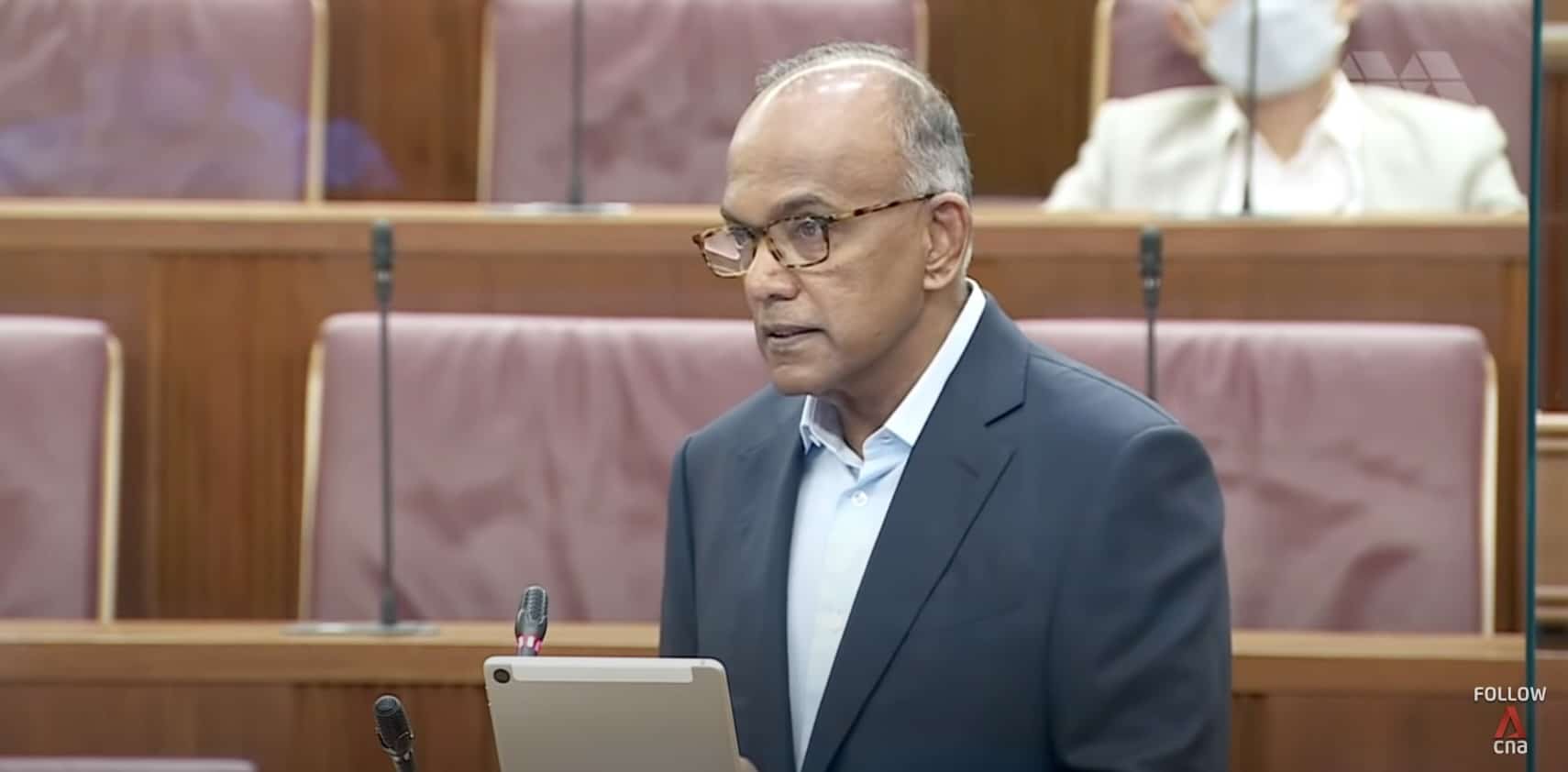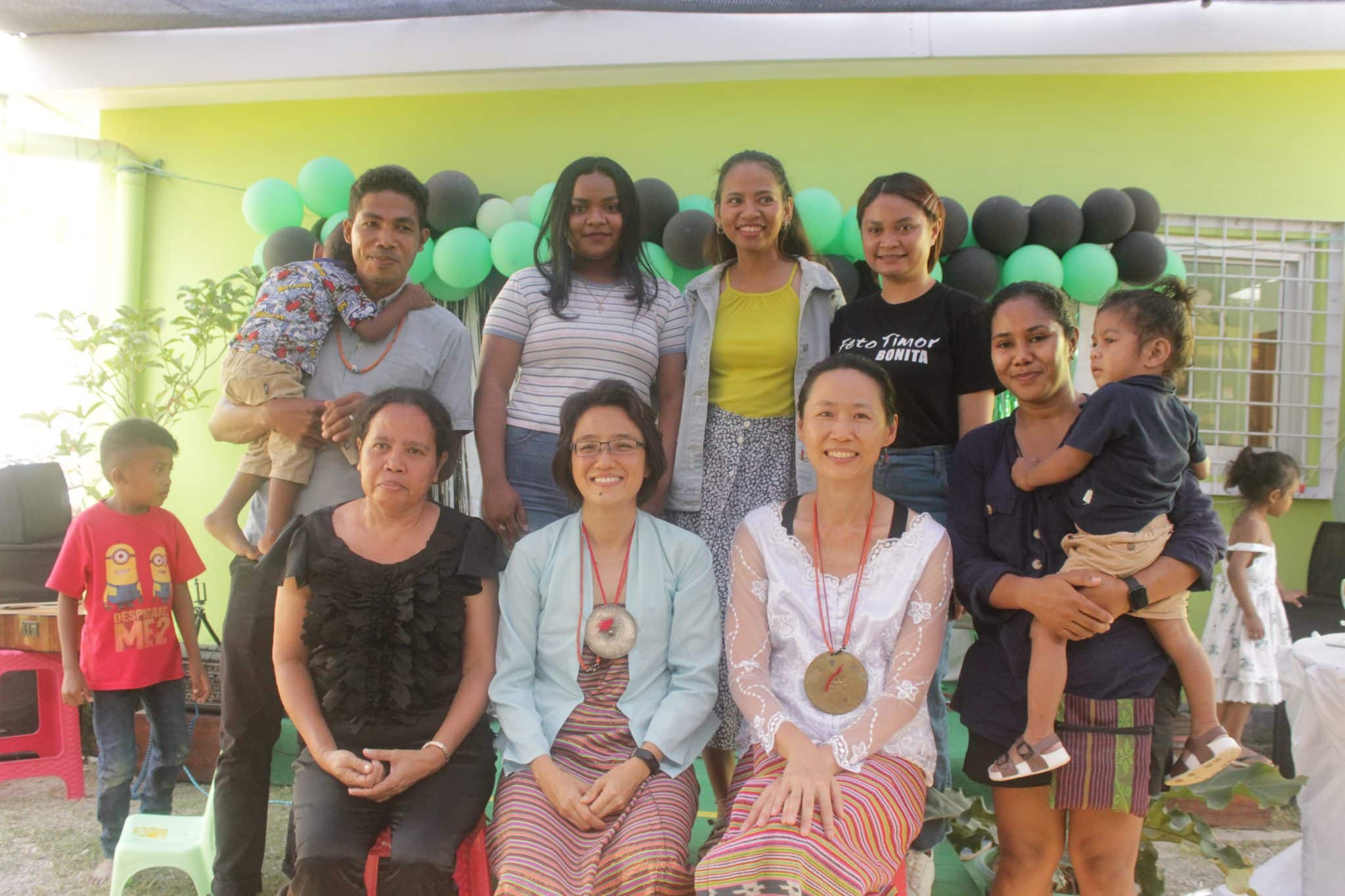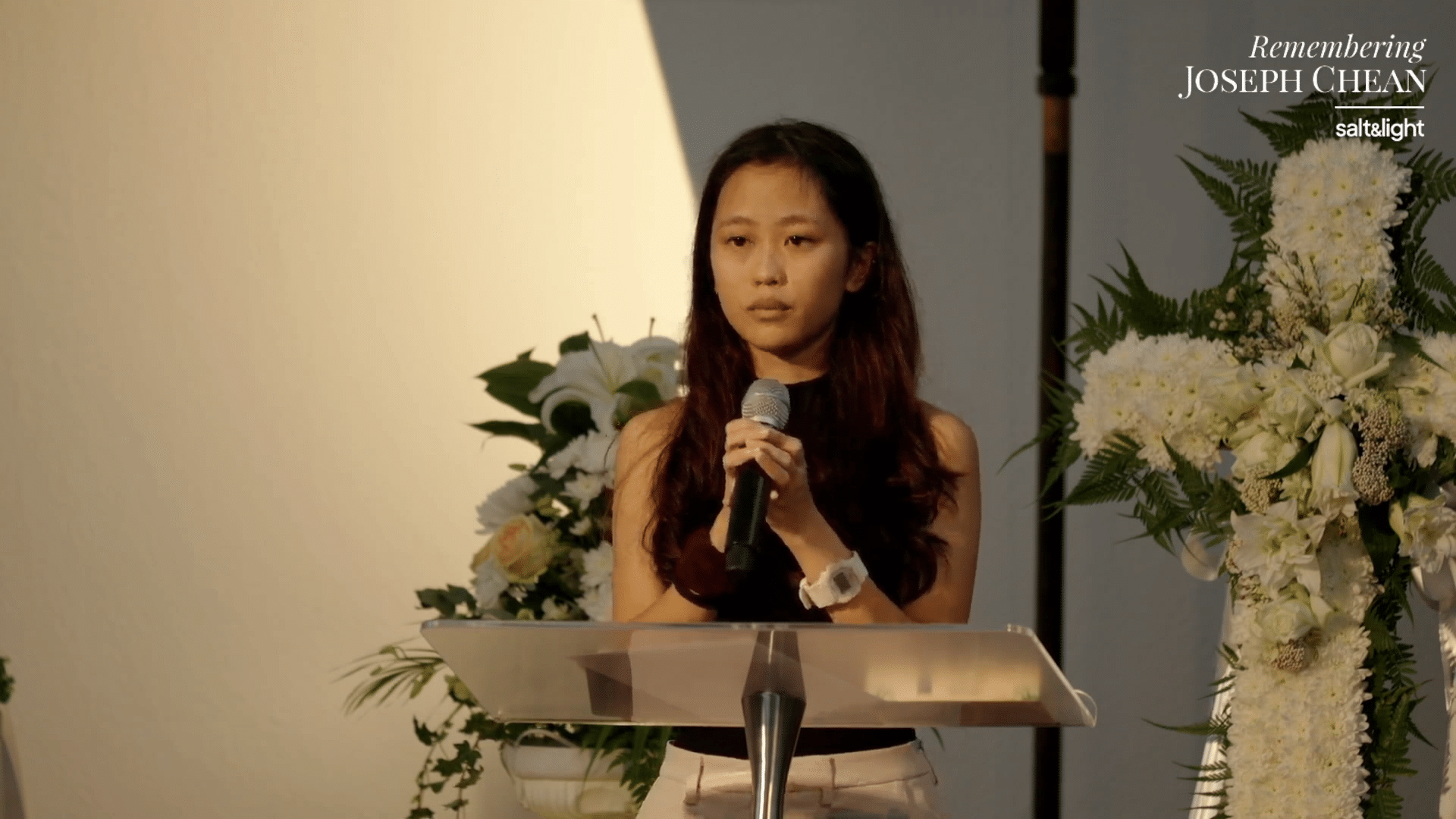“Delicate balance” needed on socially-charged issues: Churches respond to Minister Shanmugam’s views on S377A decision
Salt&Light // March 4, 2022, 4:00 pm

Home Affairs and Law Minister K Shanmugam speaking at the parliamentary debate on March 3. Screengrab of a CNA telecast on the debate.
The National Council of Churches of Singapore (NCCS), LoveSingapore, and the Alliance of Pentecostal & Charismatic Churches in Singapore (APCCS) have echoed Home Affairs and Law Minister K Shanmugam’s caution against “sudden, destabilising change in social norms”, in the wake of the Court of Appeal’s ruling against the challenge to Section 377A.
Mr Shanmugam – speaking during the Ministry of Home Affairs’ (MHA) Committee of Supply parliamentary debate on Thursday (March 3) – noted that in Singapore, a “large majority … want to preserve the overall tone of our society In particular, the traditional view of marriage as being between a man and a woman, and that children should be raised within such a family structure”.
In a statement, NCCS said: “We are heartened to hear that the Government will do this in a manner that ‘continues to balance between … different viewpoints, and (avoid) causing a sudden, destabilising change in social norms and public expectations’.
“We also note the government’s recognition that ‘the heterosexual stable family remains the social norm’.”
In a statement on Friday (March 4), prayer unity movement LoveSingapore said: “The outcome was a uniquely Singaporean resolution: a political compromise in which Parliament opted to retain Section 377A in keeping with the social norms of the conservative mainstream in Singapore.”
A “unique compromise” that works
In his speech, Minister Shanmugam said the Government is considering the “best way forward” on Section 377A, which criminalises gay sex.
“If and when we decide to move, we will do so in a way that continues to balance between these different viewpoints, and avoids causing a sudden, destabilising change in social norms and public expectations,” he said in Parliament.
The court’s decision has been consistent with past positions on Section 377A, the Minister noted, adding that the heterosexual stable family remains a social norm.
The Attorney-General’s Chambers (AGC) is currently looking at the Court of Appeal’s decision carefully, he said.
“This ‘unique compromise’ which Singapore has struck has worked so far in preventing a deeper wedge from being driven within our society.”
NCCS agreed with Minister Shanmugam that “matters relating to sexuality are socially charged issues which are highly contentious in nature and deeply divisive for society if not handled properly”.
For that reason, NCCS agreed with “the Government’s and AGC’s position that Section 377A be retained but not proactively enforced (which) successfully achieves this delicate balance between the different (and in fact opposing) interests of various groups”.
On February 28, Singapore’s apex court had dismissed a call to repeal Section 377A.
In yesterday’s statement, NCCS affirmed the Government’s approach of “upholding, as mentioned by Prime Minister Lee Hsien Loong in 2007, ‘a stable society with traditional heterosexual family values, but with space for homosexuals to live their lives and to contribute to society’.
“This ‘unique compromise’ which Singapore has struck has worked so far in preventing a deeper wedge from being driven within our society, and fostering Singapore to be ‘an inclusive society, where mutual respect and tolerance for different views and practices are paramount’,” said NCCS.
Building a family unit of belonging, comfort and security
In a media release on Friday (March 4), APCCS Chairman, Rev Yang Tuck Yoong, said: “We’re glad to see the respectful way that different viewpoints in society are given space to exist.”
“The status quo of a live and let live compromise has enabled an equilibrium to be maintained for our society to function amidst differing views.”
APCCS agreed with the apex court’s stand that 377A, while symbolically supporting our society’s moral norms, poses no prosecutorial threat to gay men.
“The status quo of a live and let live compromise has enabled an equilibrium to be maintained for our society to function amidst differing views,” said APCCS.
“We hope that this will go a good way toward addressing the concerns and pains around unjust discrimination.”
Noting that the stability of Singapore has been grounded in the family unit, APCCS reiterated its belief in a heterosexual marriage “where children are raised with the unique contributions of both a father and mother”.
Moving forward, Singapore should then look into strengthening marriages, reducing divorce rates, and “creating a culture conducive to the flourishing of families in which all members can find belonging, comfort, and security”.
Protecting what is good
“We are heartened by the Government’s wisdom in retaining Section 377A in 2007,” added LoveSingapore, noting that the merits of retaining Section 377A had been robustly debated in Parliament that year.
“This goes a long way in conserving public morality, protecting what is good and right for our nation, and reinforcing family as the basic building block of society.
Constructive dialogue will “help Singapore avoid heading down the path where polarisation weakens the fabric of our society”.
“In Prime Minister Lee Hsien Loong’s own words, by ‘family’ in Singapore, we mean one man, one woman, marrying, having children and bringing up children within that framework of a stable family unit’.”
LoveSingapore appealed to the secular Government in multi-religious Singapore to:
• Work continuously toward protecting the right of every individual or group to profess, practise and propagate their religious convictions which include the dignity of human sexuality and the complementarity of male and female.
• Enshrine in the Constitution the sanctity of heterosexual marriage, establishing this core moral value as the natural order and norm, the right model for procreation, the stable foundation to bring up the next generation for the long-term good and continuity of our nation.
NCCS, LoveSingapore and APCCS have stated they will work alongside the Government’s leaders to ensure a stable society.
“We will continue to work closely with the Government as it considers the ‘best way forward’ on s377A,” pledged NCCS. This will include “consulting the different groups and engaging the different viewpoints”.
APCCS expressed hope that constructive dialogue among different community stakeholders will “help Singapore avoid heading down the path where polarisation weakens the fabric of our society”.
Added LoveSingapore: “We will come alongside our leaders to safeguard our nation’s moral fibre.”
RELATED STORIES:
How can the church respond better to those with same-sex attraction?
How can the church respond better to those with same-sex attraction?
We are an independent, non-profit organisation that relies on the generosity of our readers, such as yourself, to continue serving the kingdom. Every dollar donated goes directly back into our editorial coverage.
Would you consider partnering with us in our kingdom work by supporting us financially, either as a one-off donation, or a recurring pledge?
Support Salt&Light




